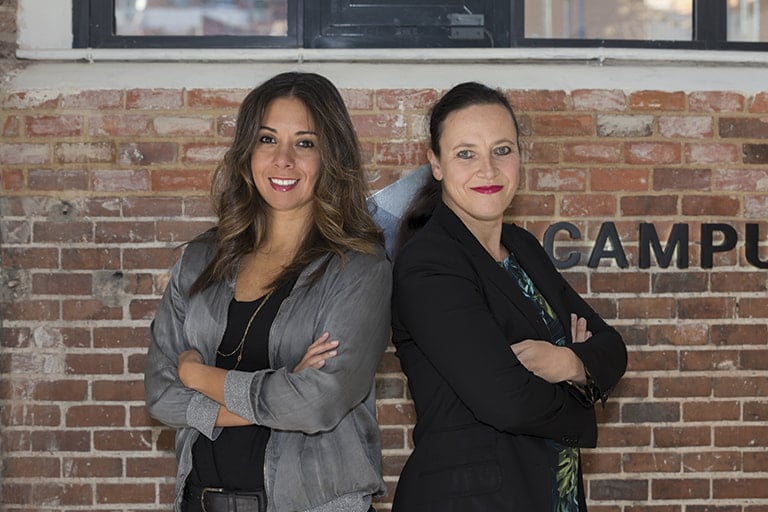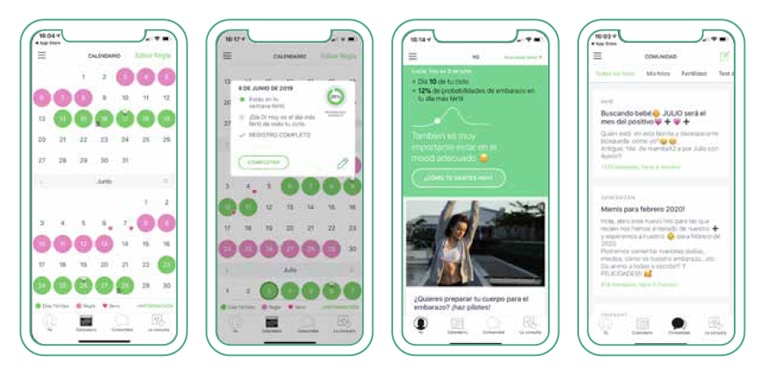TEXT ALBERTO GAYO | PHOTOGRAPHS WOOM, ISTOCK
Only five years have passed and at the international level, WOOM is considered one of the most reliable and successful technological tools in the field of reproductive health. More than 1.5 million registered users in 9 countries in Europe, Latin America and North America confirm its success. More than 100,000 reported pregnancies attest to its worth. In the midst of the health emergency caused by the COVID-19 pandemic, this startup in the femtech sector secured an injection of 2 million euros in a fundraising round. With a staff of 22 workers and a subsidiary development company in Bulgaria, its goal was to impact the lives of women through technology. And they have succeeded. This ability to transform and help people achieve their goals is what has led companies like MAPFRE, in this case through its insur_space program, to collaborate with WOOM so that its innovations can touch even more women.
But what is WOOM? We are talking about a technological solution based on artificial intelligence. With professional advice —developers, engineers, data science experts, doctors and psychologists— it allows women to keep track of their menstrual cycle and calendar, maximizing their chances of getting pregnant. “Not only does it help increase the odds of success, it is a daily partner for women in terms of health and wellness, and it facilitates relationships between women from different parts of the world. In fact, we have created a global community with more than 50,000 monthly comments, the most active in Spanish on women’s health”, explains Clelia. The app helps users make decisions based on self-knowledge of their bodies and lifestyle habits, and shortens conception times.
An increasingly smart algorithm
A predictive algorithm trained and fed with data obtained from more than 100 parameters related to the life of each woman is used to determine how long her menstrual cycle lasts, when her period is due, when premenstrual syndrome begins and what her most fertile days may be. It also provides advice on changes in habits related to sports, nutrition and sex, which can improve the reproductive health of the women involved. The algorithm we use now”, says Clelia, “has been perfected, it understands when your period is early or late. It doesn’t know when it happens, but it takes into account your entire history to make the best prediction. Now we have so much information that we gather the cleanest and purest data. The algorithm has gotten a lot smarter.” Contributing to this “intelligence” have been AI and data science health specialists from Silicon Valley (California, USA), the home base of the most important startups as well as tech giants. As no two women are alike, one of the many virtues of WOOM is that the dozens of parameters used by the algorithm allow highly personalized content to be sent, and not only relating to fertility, but also about exercise, nutrition, mental health and sexual health.

Laurence Fortinoy and Clelia Morales, entrepreneurs behind the WOOM project.
From big corporations to setting up a startup
Back in 2006, Laurence and Clelia were working together at eBay Spain, one of the pioneering global e-commerce platforms. The former as the marketingdirector and the latter as the communications director. “We realized that we worked very well together”, the two admit. Laurence, born in Belgium but closely linked to Spain since she was a child, left eBay to start working at Google. In 2015, her professional path once again crossed that of Clelia, a native of Honduras. “Again it was a revelation. The two of us had been working for large companies for more than 15 years and we both wanted to do something new. Clelia wanted to develop a project linked to wellness and I, from my own experience, wanted to link my future to fertility”, says Fortinoy. “Leaving the community of a large corporation that treats you very well is not easy, but we had to move forward and I haven’t regretted the decision I made for a single day”, adds Morales. Clelia acknowledges her partner’s perseverance and Laurence her partner’s intuition.

hirty-five percent of WOOM users are in Spain, another 30 percent in Mexico, 20 percent in the rest of Latin America and 15 percent in the USA and the UK. “There are women from all socioeconomic profiles”, explains Clelia Morales, “because WOOM is a massive tool that is available to any woman who has a smartphone. Half of our users have a fertility challenge, it doesn’t mean that they are undergoing fertility treatment, but that they are taking longer than normal to get pregnant.”
That empathy is undoubtedly one of the skills of female entrepreneurship, which in WOOM‘s case is added to passion, creativity, organization and tenacity
“When we started we hadn’t even made a PowerPoint”
WOOM’s startup was supported and mentored by SeedRocket, the Google Residency accelerator and The Venture City, investors active in software. “When we started we hadn’t even made a PowerPoint. We applied to SeedRocket, and now we’re mentors for them. We were chosen for the entrepreneurship campus from among more than 200 startups. It was like a birth, in nine months we had launched the product”, remembers Laurence. SeedRocket was very important when it came to launching the app, “that’s where we did our first investment round, a lot of serial entrepreneurs came in and helped us create the product.” Clelia Morales recalls that with Google Residency they perfected the app and with The Venture City they further professionalized WOOM’s growth.

The venture capital world is 97 percent male, meaning that sometimes they don’t understand what you are doing and its importance in the market
We decided to seek investment from female business angels and funds focused on healthtech and femtech
WOOM AND MAPFRE
“Profitability and growth are fundamental in any startup. It’s what differentiates tech startups and that’s why you have to look for the best allies.” In this context, WOOM and MAPFRE have sealed a strategic alliance, offering a greater commitment to the insurer’s female clients together with a more personalized service. “We are at the pinnacle of innovation in the field of women’s health. The most exciting thing is that there will come a point where WOOM will be able to take the pressure off doctors’ offices and hospitals with its service. The impact will not only be positive and personal for the woman, but for the healthcare system thanks to innovation.
Five years ago we didn’t think that everything would accelerate so fast”, concludes Laurence.





